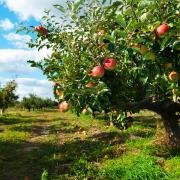It was something of a coup for Pumphouse Community Brewery when The Railway Arms in Saffron Waldon was named CAMRA’s Essex Pub of the Year last summer. ‘We produce their house beer, Railway Ale,’ says Richard Evers, the brewery’s current chair. ‘So, we can proudly say: “We brew the beer for the Pub of the Year!”’
The Railway Arms is just one of many Essex and Suffolk pubs supplied by the micro-brewery, which is run by volunteers based in and around the village of Toppesfield, north of Braintree. Established in 2015, Pumphouse was one of the first breweries in the UK to be set up as a community benefit society, a category of business that requires all profits to be used, as the name suggests, for the benefit of the community.
‘There was already a community pub and shop in Toppesfield and it was thought that it would be quite a good idea to set up a community brewery to supply the pub and other pubs in and around the area,’ recalls former chair Trevor Wyeth. Pumphouse still supplies The Green Man to this day, supporting the work of Essex’s only community-owned pub by providing its beers at very competitive prices.

These low prices are made possible by the fact that, aside from the brewing itself, which is done by professional brewer Aaron Osborne, all the other aspects of the business, from bottling to distribution and from labelling to marketing, rely on a small team of enthusiastic volunteers.
When the brewery first set up, one of its objectives was to provide more volunteering opportunities, especially for retired people, and it’s certainly delivered in that regard. As is often the case with ventures of this kind, the majority of Pumphouse’s volunteers are retired – though not exclusively so.
Richard, a retired marketing consultant, first got involved with Pumphouse when he bought community shares in the brewery (its initial community share issue raised an impressive £21,000). He became a committee member in 2016 and chair in June 2022. What drew him in was the ‘opportunity to be part of a community venture with a genuinely interesting end product: really good beer.’
These days, Richard particularly loves the bottling. ‘It’s a team job, ideally three or four people, so it’s quite convivial. You have to concentrate, but the craic is good, and the beer needs testing for quality control purposes!’ he says. ‘It’s one of those jobs, like bricklaying, where you have the immediate satisfaction of producing something physical and desirable.’
As chair, Richard’s focus has expanded to growing the business, both by recruiting more shareholders and volunteers, and by reaching new customers. ‘People love Pumphouse ales. Our focus should be on encouraging them to have fun with seriously good beer,’ he says.

It certainly goes down a storm with pub landlords, says volunteer Paul Cook, who looks after the sales side of things. There’s also something very attractive about the idea of community brewing in itself. Paul says: ‘Each ale has a story behind it, and publicans love to be able to tell their customers about it.’ 19 Elms amber ale, for example, was brewed to mark the planting of 19 elm trees in Toppesfield in memory of the 19 young men of the village who gave their lives during World War One. Another brew, The 9th’s Havocs American pale ale, is named after the US Air Force’s A-20 aircraft, which were based at nearby Wethersfield in 1944.
While Pumphouse has no problem finding customers for the beer, attracting new volunteers can be challenging. Paul explains: ‘When these communities kick off, they are full of excitement, then after a few months the interest tends to wane, and you get down to a limited number of old people who want to stay involved and find that they can’t because they’re not able to do so. We have got to rethink how we appeal to the younger generations.’
That might mean social events like the open mic night run by the pub, but there’s also scope for more ambitious interventions, such as building up sufficient funding to train up a young person for a new, paid, sales role at the brewery. ‘I know a few people that would grasp that one,’ says Paul.
It won’t be easy – profit margins are small in brewing at the best of times, and any revenue raised is currently funnelled to support local causes such as the shop, school and church – but Richard, Paul and their fellow volunteers are undeterred.
‘Small, independent breweries are having a tough time from brutal increases in the prices of materials and energy. The impact has been severe so soon after the pandemic,’ says Richard. But he goes on, ‘Pumphouse has become smart at responding to challenges and I am confident in its ability to come through the current cost-of-living crisis. Having a micro-brewery in the village is simply a lovely asset. It plays its part in making Toppesfield a special place to live, work and visit.’
pumphousebrewery.co.uk



























